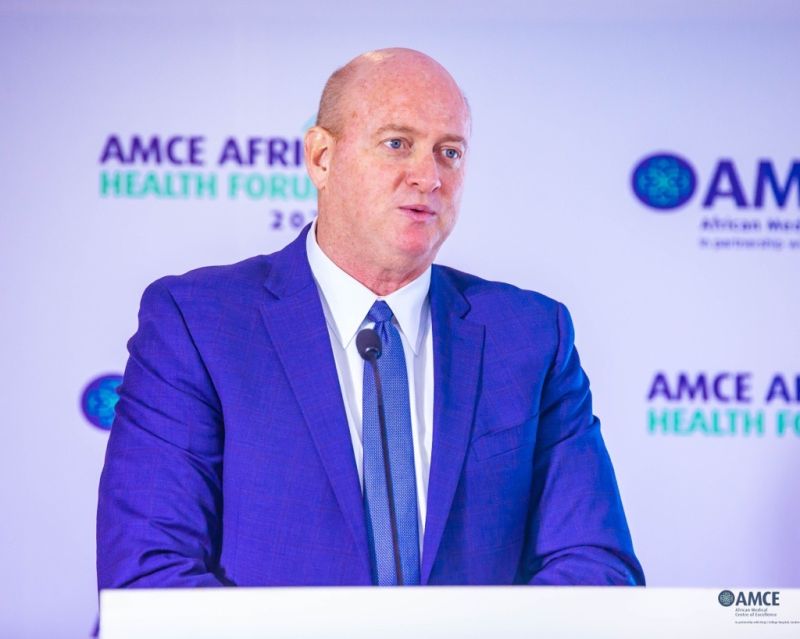By Patrick Wemambu
Debatably, the last may not have been heard about the controversial four-pronged Executive Bill transmitted to the National Assembly by President Bola Ahmed Tinubu since September following recommendations of the Taiwo Oyedele-led Presidential Committee on Fiscal and Tax Reforms.
The proposed Revenue Reform Bills 2024 seek to amend/enact the Nigerian Tax Administration Bill, the Nigeria Revenue Service Establishment Bill, the Nigeria Tax Bill and the Joint Revenue Board Establishment Bill. The stated objectives of these bills include to expand Nigeria’s tax base, improve compliance, and establish sustainable revenue streams for the nation’s development.
Highlights of the piece of legislation include the new formula proposal of 60% VAT to credit of states shared based on derivation while 20% is based on population and the other 20% equally among the states. The most contentious part of the Bills seems to be the new provisions on VAT which some parts of the North have described as capable of impoverishing them.
However, since their introduction, controversies have trailed the proposals from those in opposition of the bills. The National Executive Council (NEC) comprising the 36 state governors and chaired by Vice President, Kashim Shettima, had while noting the need for sufficient alignment on the proposed reforms last October appealed to Mr. President to withdraw the Bills from the NASS to allow for wider consultations.
Just as Senator Ali Ndume representing Borno South declared the Bills as ‘dead on arrival,’ significant opposition from Alhaji Atiku Abubakar, northern governors and their 73 lawmakers have voiced concerns over the socio-economic impact of the bills to their region.
Conversely, proponents have thrown their weight behind the bills. Information Minister, Mohammed Idris, Former House of Representatives Speaker, Yakubu Dogara and Catholic Bishop of Sokoto, Hassan Mathew Kukah are among those emphasizing the transformative potentialities of the tax reform proposals. The Presidency has asked those opposed to the legislation to wait till the public hearing stage at the NASS to make their presentations.
Similarly, findings in a report by PUNCH online newspaper of 7th December 2024, indicate that 36 states of the federation with FCT are expected to receive additional N976bn in funding from FAAC – if the tax reform bills are fully implemented over the next 3 years.
In a dramatic twist of events – amidst growing pressure, the House of Representatives in a memo titled ‘Rescheduling of Special Session on Tax Reform Bills’ has suspended debate on the proposal. Following suit, the Senate at its Wednesday 4th December 2024 plenary presided over by Deputy Senate President, Barau Jibrin, announced halting further action on the said bills as a result of divisions regarding them. This was to make room for more consultations.
However, some 24 hours later, Senate President, Godswill Akpabio, declared that the bills have not been suspended. Even as the red chamber constituted a committee to liaise with a federal government delegation to resolve concerns raised on the bills, Akpabio insisted legislative work was still continuing on the proposal which has passed its second reading.
Meanwhile, as the legislative battle rages on, Nigerians watch with bated breath the unfolding debate – to be or not to be – of the complexities of the tax reform bills. While commending the Tinubu administration for its commitment to fiscal reforms, an examination of the proposed amendments will reveal other critical implications.
According to the Nigeria Inter-Bank Settlement System (NISS), the nation’s electronic payment transactions rose by 55% in 2023 to N600 trillion. This compares to N387 trillion in 2022. Yet, the VAT generation has been less than N10 trillion in the past few years. Tax payment should be incentivized.
X-raying the proposed increase in VAT from 7.5% to 10% will reveal a potential burden which will result in increased prices of goods and services. Consequently, the redistribution of income argument is flawed since the proposed increase is a flat rate.
Enter Clause 8 (2) of the Nigeria Tax Administration Bill 2024. Is this provision which makes Tax ID mandatory requirement for opening or operating a bank account not capable of discouraging banking habits – especially for non-formal sector employees?
Patrick Wemambu, political scientist, journalist writes from Abuja. He can be reached through *paddywem@gmail.com*





